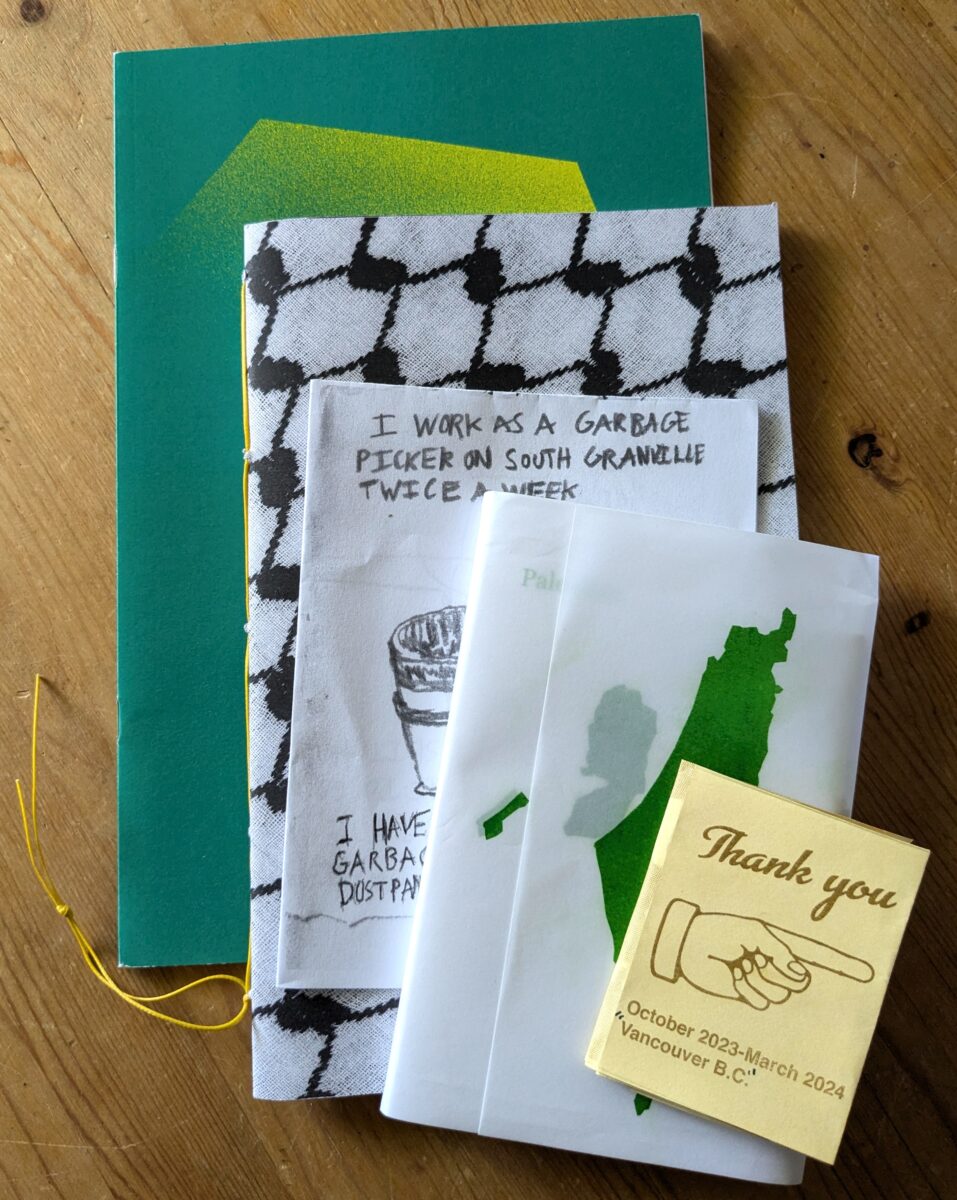
The first event to celebrate publications in the series RML3: Undercurrents and Folds at grunt gallery in Vancouver drew a large crowd. And, some of those lovely people also brought zines to trade! The event highlighted Sarah Shamash’s insightful memoir, Didactics to Postpone the End of the World, and with it the work of Emily Carr University Art + Design (ECUAD) students and staff who together produced Palestine A-Z: An Illustrated Poem, and Biko (also from ECUAD) who made Untitled Zine on Student Intifada. All three were available to the large crowd with a donation to aid Palestinians in Gaza, or by exchange.
Palestine A-Z: An Illustrated Poem is a card deck wrapped in a translucent cover which demonstrates the ever shrinking demarcation of Palestine, layered for comparison. Jean Chisholm and Gabe Wong designed this riso-printed publication. The introduction by Sue Shon describes how the images resulted from a group study of the poem “Palestine A-Z” by Mosab Abu Toha from his book Things You May Find Hidden in My Ear: Poems from Gaza (City Lights Books, 2022). Shon writes about how studying the poem enabled them all to be activated to make a creative response to the “life and death in occupied Palestine.” Mosab Abu Toha’s entry for “B” refers to books and borders. It describes a kind of book defiled by borders and defended by violence. That book is antithetical to Reading the Migration Library,
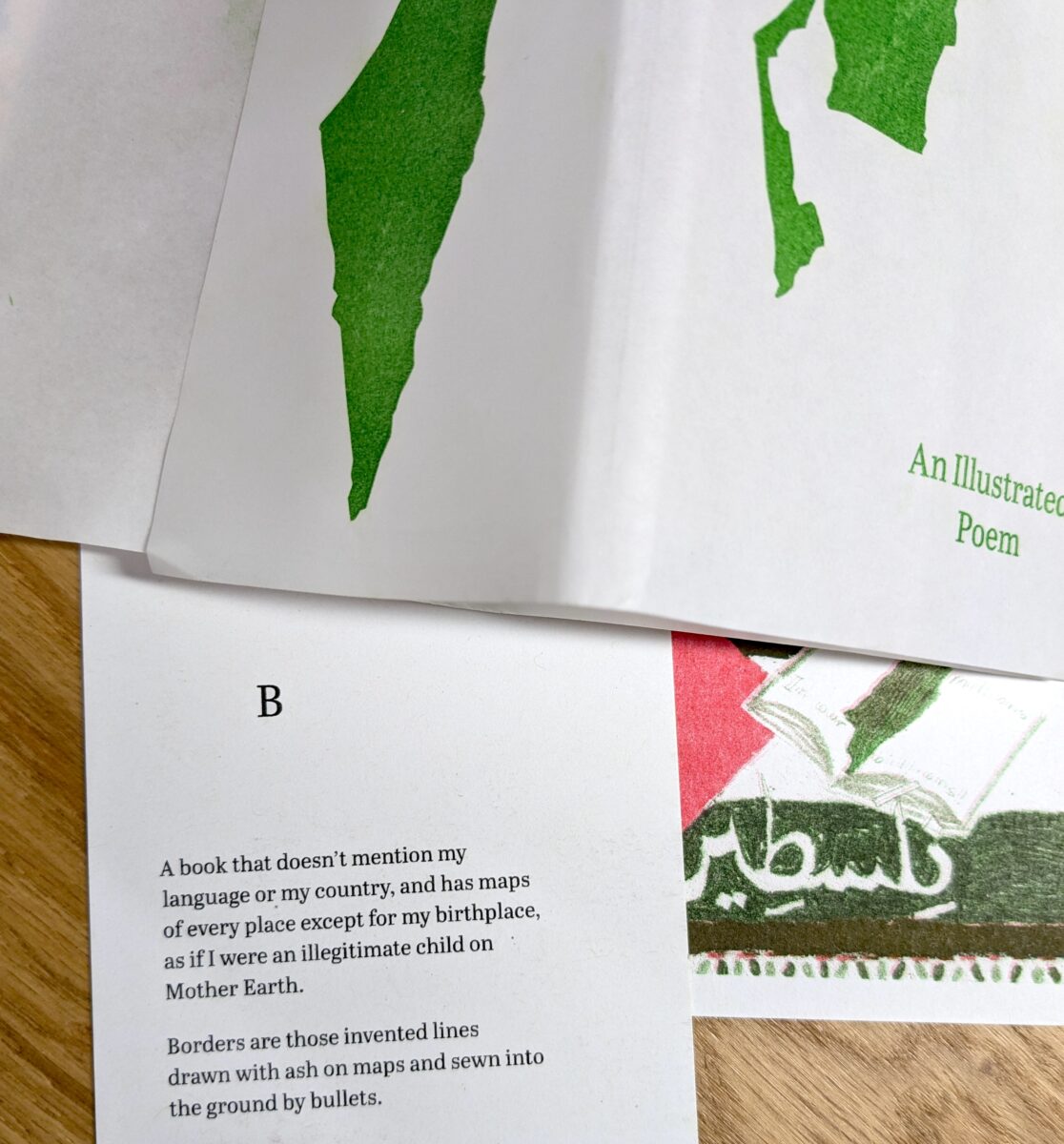
The folded zine, I work as a garbage picker on South Granville twice a week, by Frederick Cummings could be considered a companion to Cummings’s 2017 RML publication, My Nomadic Family. In that photocopied, tabloid-sized folded page, Cummings gives a tribute to the migrations of ancestors, including his Dene Za (Beaver) great grandmother who maintained a nomadic lifestyle, despite being marooned for a time in a hospital bedroom. The new letter-sized folded page describes Cummings’s own daily travels, during which he considers his place in the wealthy part of the city.
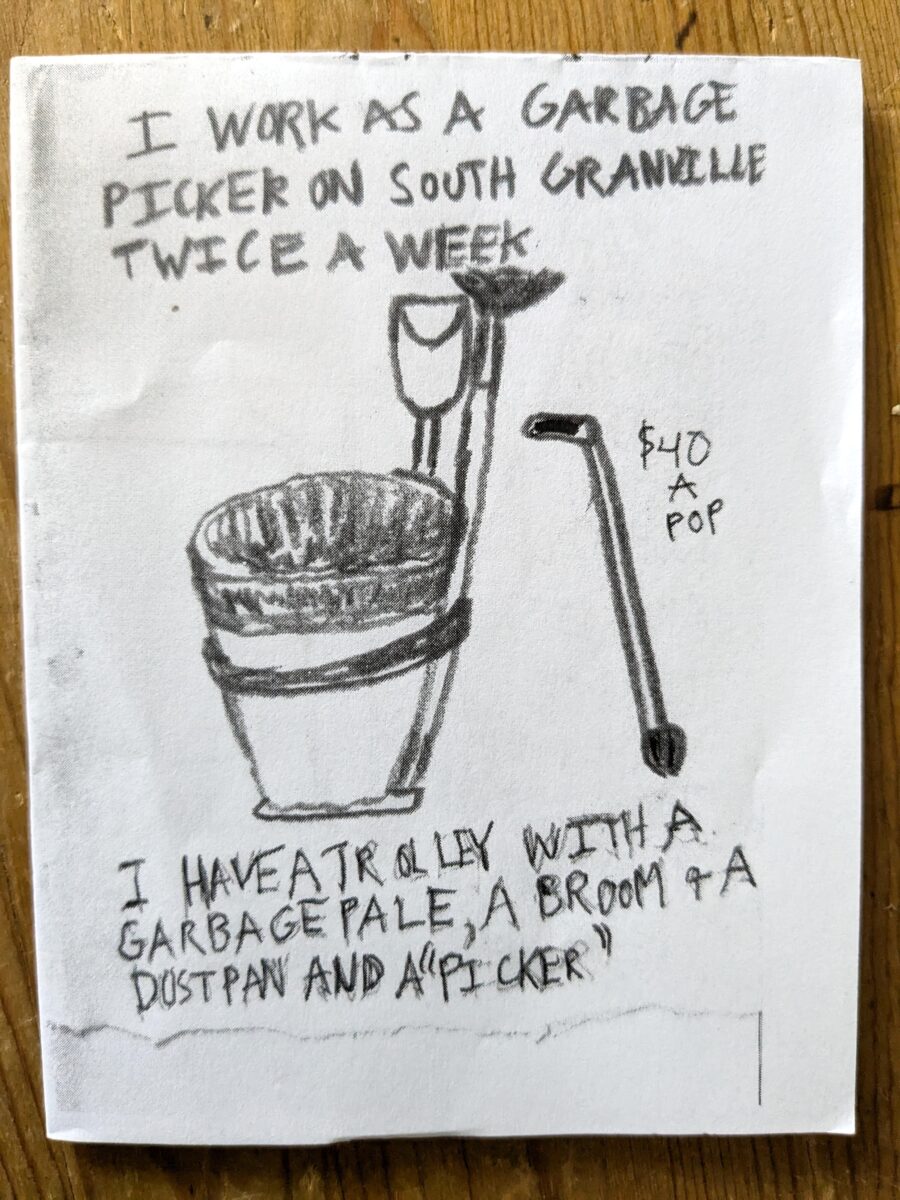
The chapbook Green Lines by Stacy Ho, with images and design by Anahita Jamali Rad, offers two poetic texts that so nicely relate to Reading the Migration Library project, as a trail of nomadic reflections. The first text considers the interconnections of cultures that obsess over invasive plants and cultures that obsess over migration controls, and how the cultural history of gardening cultivates these kinds of obsessions with bordering people and species. The second text continues as a reflection on the possibilities of a line, the kind of line that is not a border but rather a thing that can be drawn out and broken. Ho suggests the line as a metaphor for the way beautiful friendships and relationships are held together – maybe those lines are scribbled, or meandering.
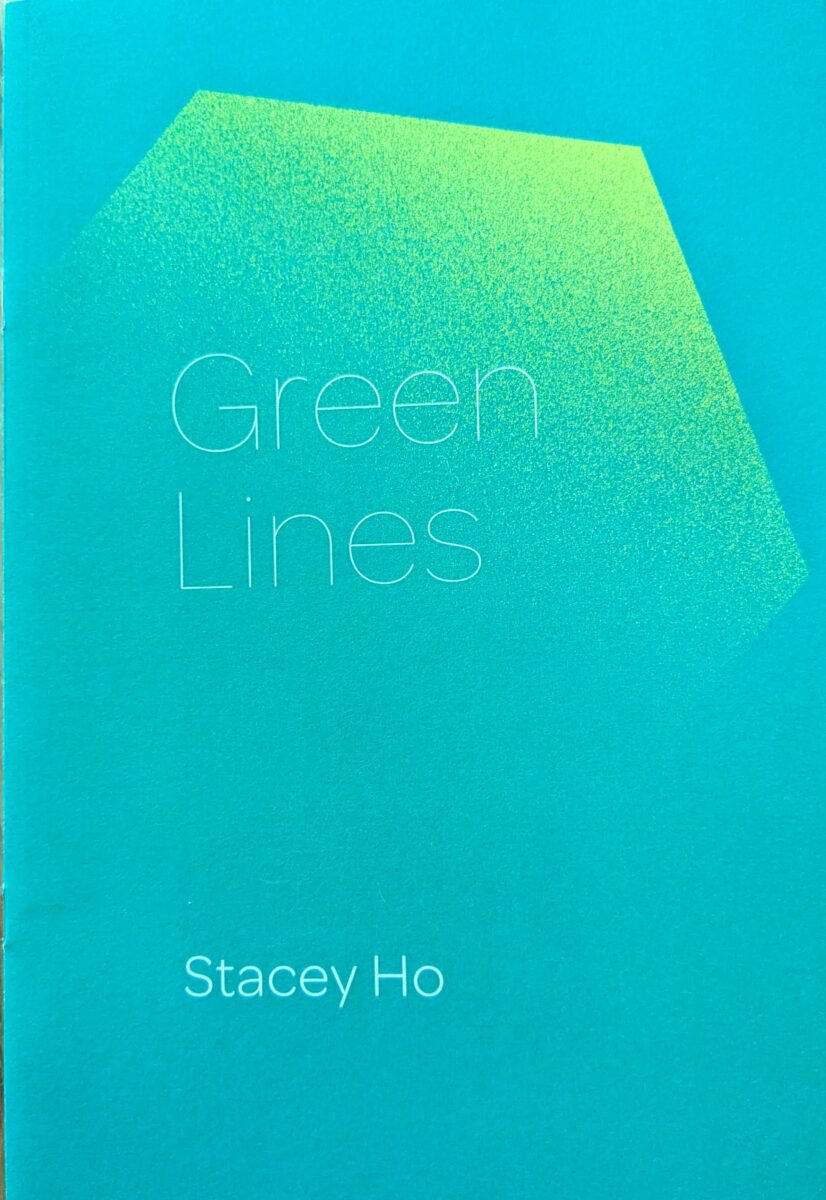
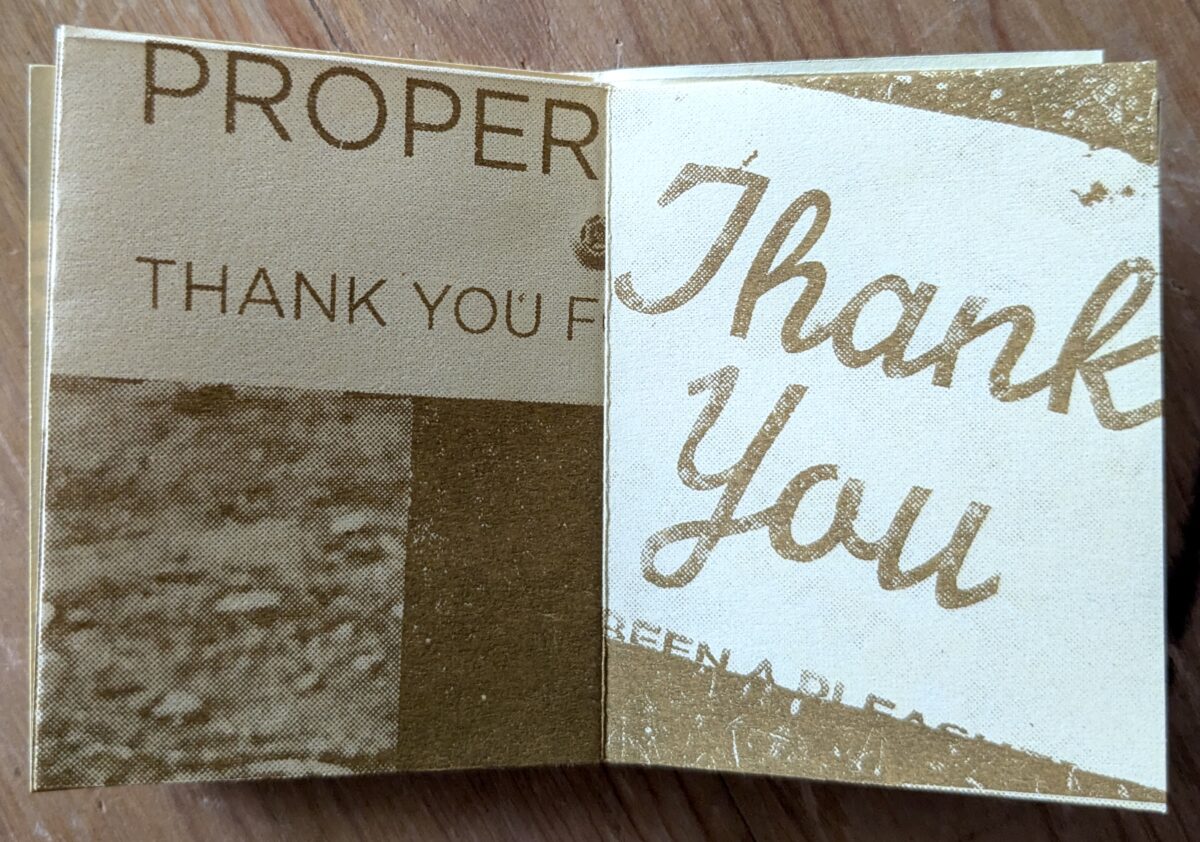
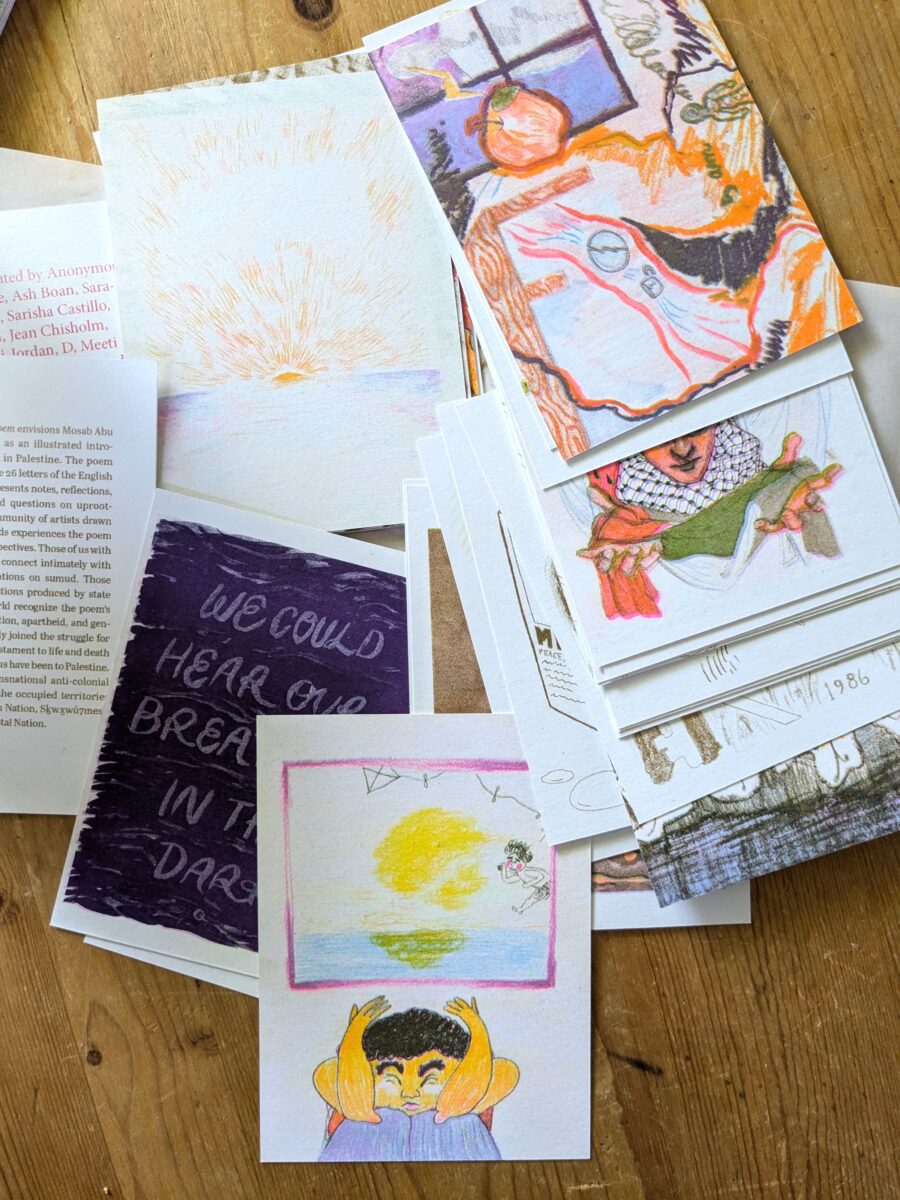
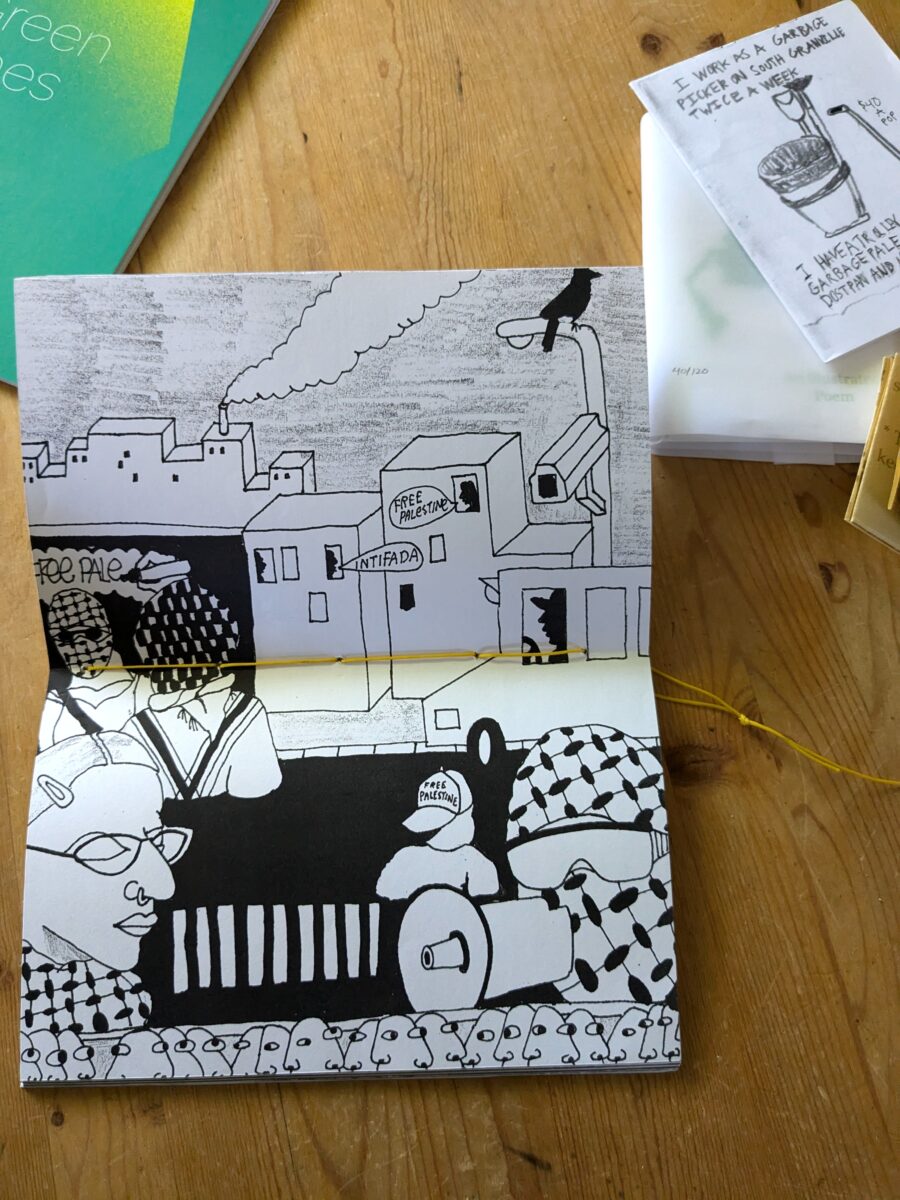
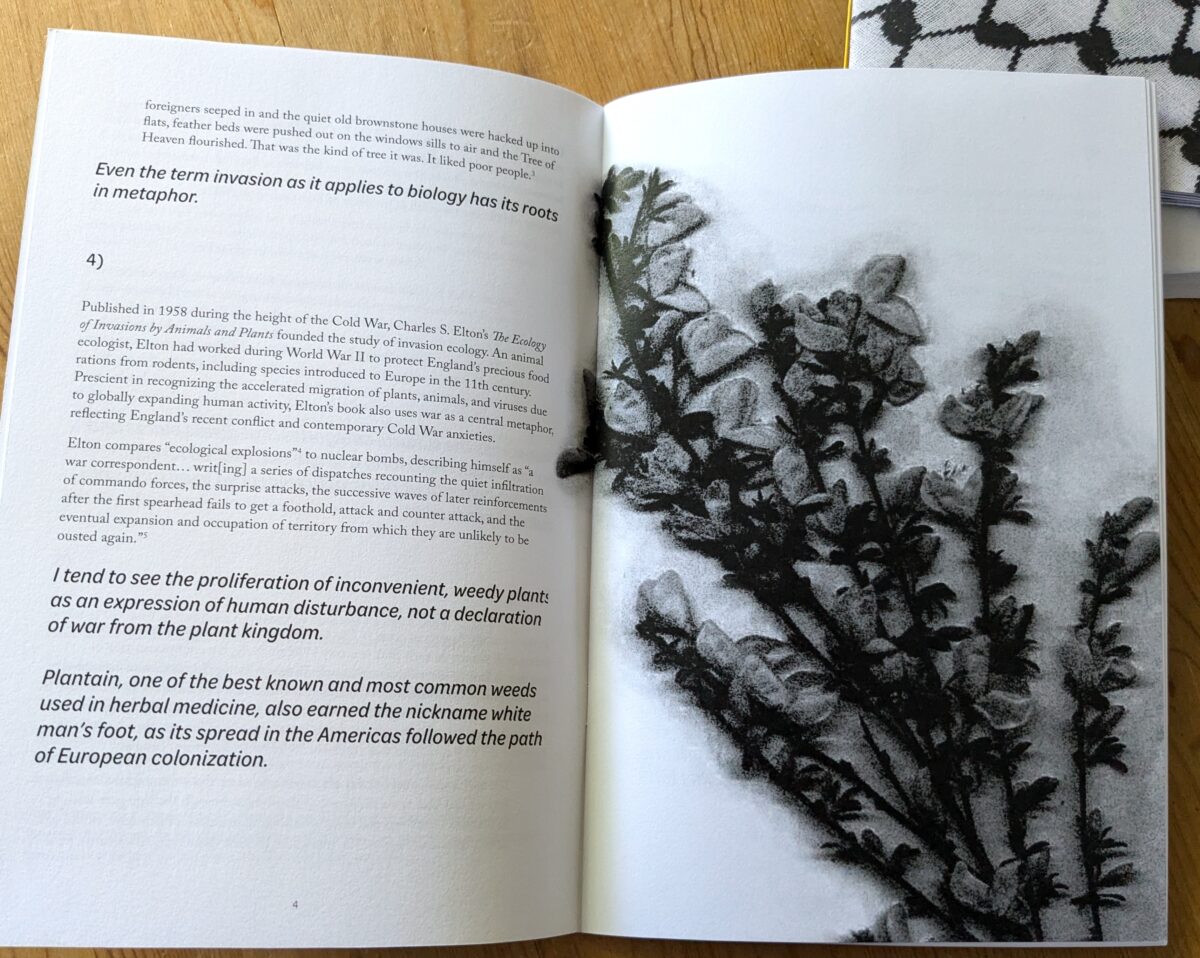
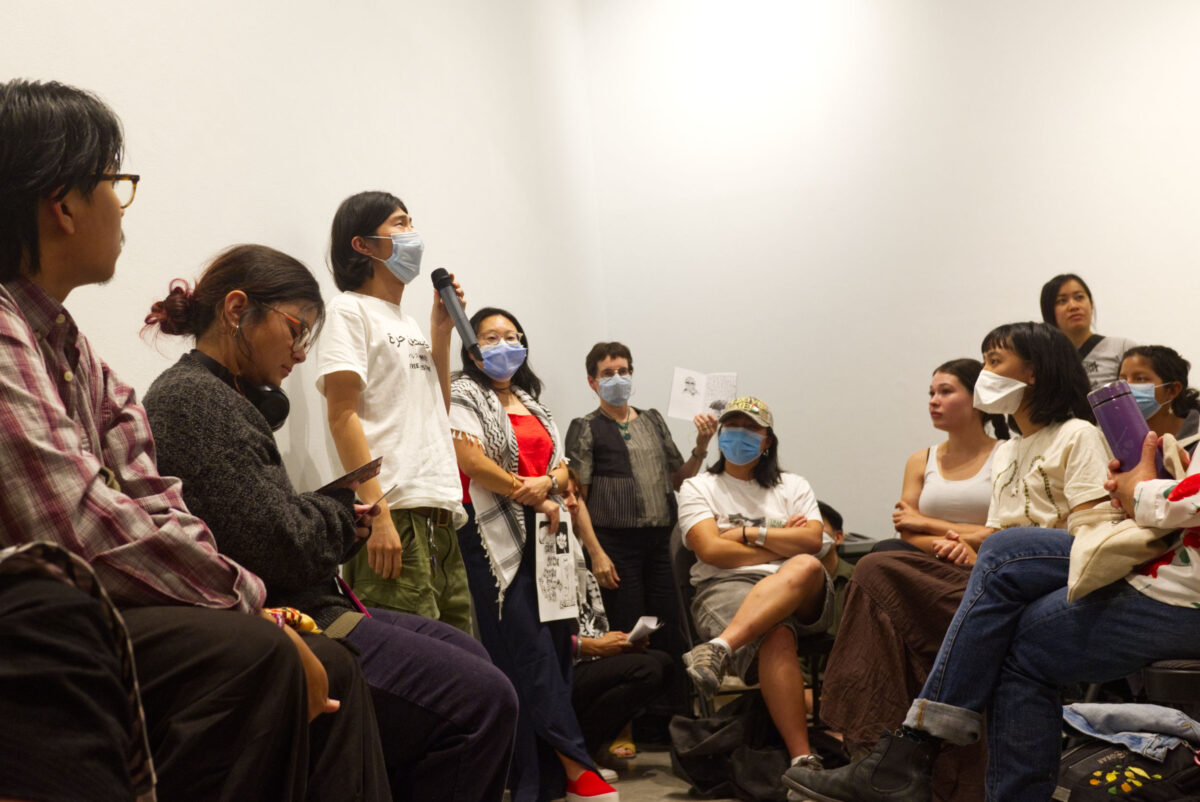
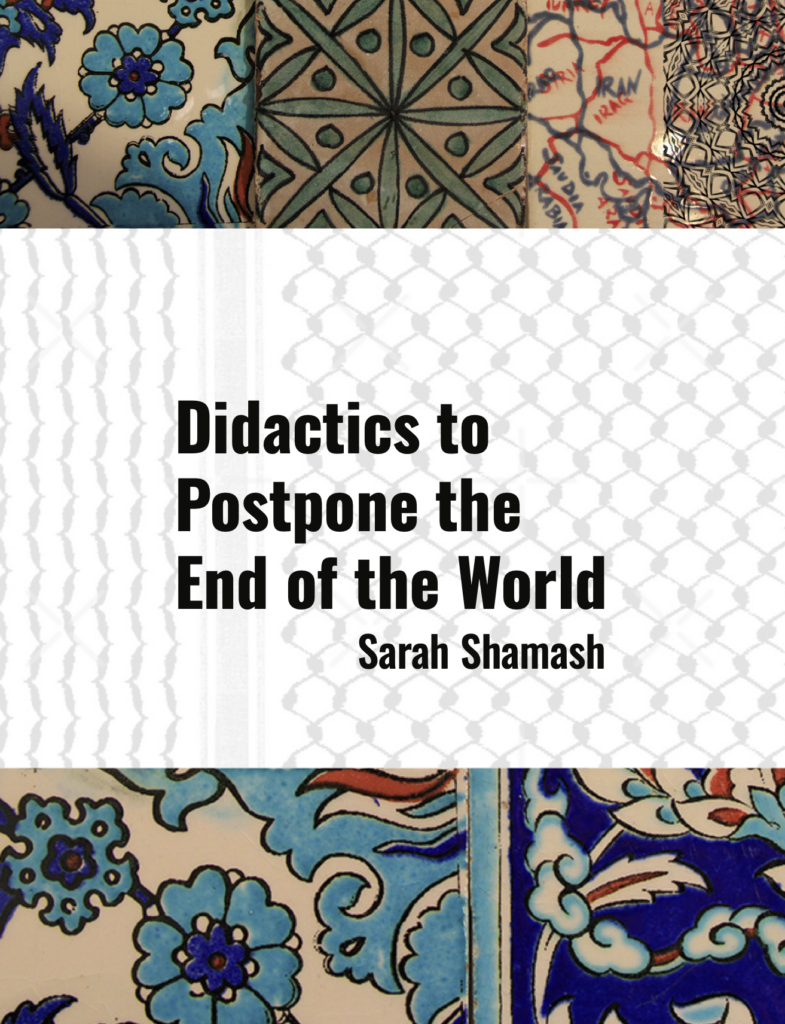
Lois Klassen
